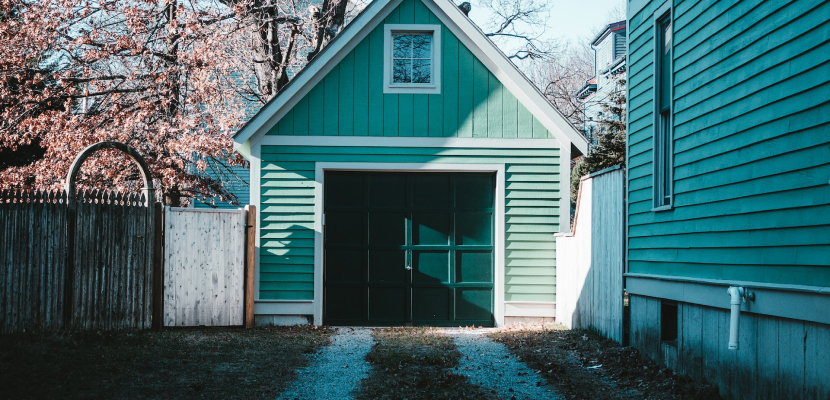Weighing up the different garage door materials pros and cons is an important part of choosing a new garage door for your home. While all materials have their advantages, choosing the wrong material for your needs will cost you time and money. This article will outline the different advantages and disadvantages of the most popular garage materials in the UK, so you can choose the best one for your home.
Steel
Steel is one of the most common materials for garage doors. This is largely due to its sturdy build quality, design flexibility, and great value for money. A steel garage door is extremely long-lasting, and significantly lighter and easier to maintain than its wooden counterpart.
However, despite its numerous pros, some of the cons of steel garage doors are their susceptibility to corrosion and rust. Steel also isn’t a natural insulator, so you might need to look into additional insulation to strengthen your steel door and save energy.
Aluminium
If you’re considering a roller garage door, chances are it’s made from aluminium. The level of insulation this material provides makes it a great option for garage doors, while aluminium doors are resistant to corrosion and very lightweight to manoeuvre. Similar to steel garage doors, this material comes in a range of designs suitable for every home.
However, aluminium is notably less durable than steel. Strong winds or hail might cause dents in your aluminium garage door, and you’ll need a specialist, like the team at PCS Garage Doors, to come out and fix it.
Timber
When it comes to wooden garage doors, look no further than timber. There are many pros of a garage door made of timber, namely a material with a unique and natural look, one that offers surprisingly long-lasting protection, and is an excellent insulator. If you’re thinking about using this space as a living area, timber garage doors are a brilliant choice.
Cons of timber doors include their susceptibility to warping, rotting, or swelling, and the fact they can be heavy and quite difficult to manually operate.
GRP
Glass-reinforced polyester (GRP) boasts the number one strength-weight ratio of all the other materials. What does this mean? Well, if you’re searching for a garage door that’s highly resistant to harsh weather conditions and will keep the inside of your garage warm in the winter, the answer is GRP.
The only major downside? While the price of GRP up and over garage doors has come down in the last few years, it’s still one of the priciest materials out there. Put simply, a GRP garage door is definitely an investment, but one that typically pays dividends.
ABS
An outdated garage door can often put off prospective
A garage door made of ABS (Acrylonitrile Butadiene Styrene) plastic is the ideal choice for withstanding everyday family life; no other material is as tough yet flexible and has a distinct ‘bounce-back’ quality that makes your kids kicking a football off the new door just another part of your day. Requiring almost no maintenance, an ABS garage door is lightweight, rot-resistant, and waterproof.
However, like most things, this material does have a few downsides worth considering. ABS is on the pricier end of the spectrum and can be vulnerable to weathering over time. Regular exposure to UV rays may cause the finish to fade, for example.
Choosing the right material for your garage door is an important consideration for any homeowner. At PCS Garage Doors, we stock a range of garage doors in various materials, sizes, and styles – so you can find your perfect garage door that not only looks good, but stands the test of time.

